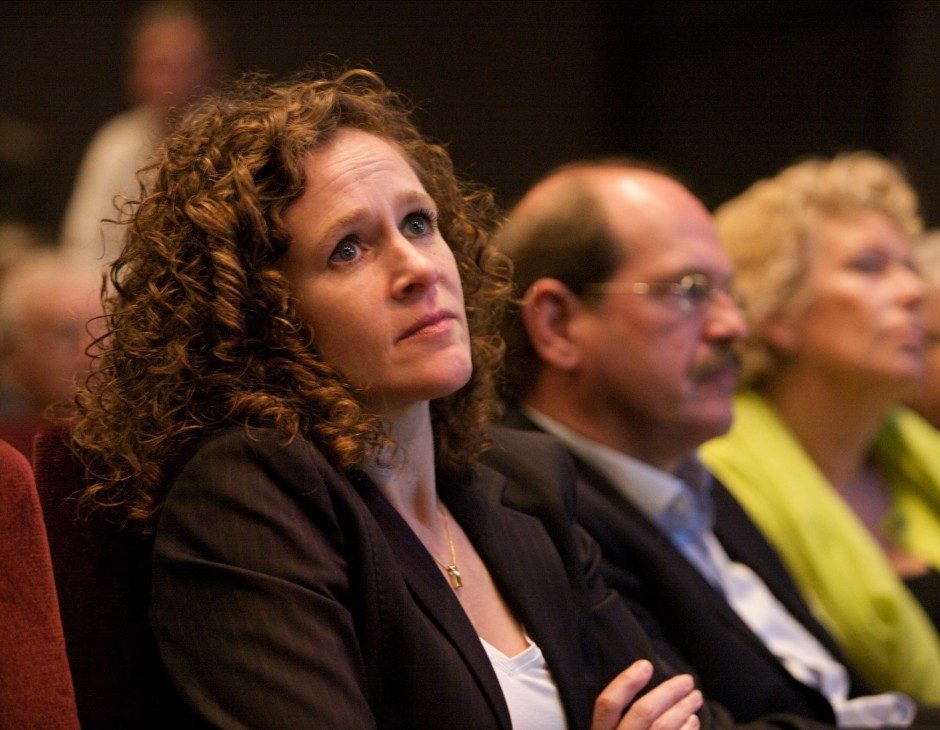Sophie in ’t Veld, Dutch MEP for the Liberal Democrats 66 party, does not mince her words. She has filed lawsuits against the US Department of Homeland Security, attacked Pope Benedict’s views on gender theory and deemed Nigel Farage’s claims as probable as a Martian invasion. When I spoke to her before a seminar at the Blavatnik School of Government, tucked away in the green room straight after her arrival, she lost no time in putting forward her opinions.
An honorary associate of the UK National Secular Society and former winner of their ‘Secularist of the Year’ award, Sophie began by outlining the increasing influence of faith groups in European governance. “At the start of European integration in the 50s, there were six countries which set up intergovernmental cooperation in the area of coal and steel, and that didn’t have a very strong ethical dimension. Today, we are over 500 million citizens, and we’re dealing with lots of ethical issues, and there are lots of policy areas with strong ethical dimensions. So ethics has become very important, and I note that the more conservative brands of religious communities have already understood this and they’re very much on top of it, but the more liberal brands of religion and humanist and atheist groups have not yet fully captured this.
“So we see that there is very strong influence from the Vatican – because they have privileged access to the institutions as a state, they don’t have to register as a lobby firm – but we have also seen a very rapid rise in the last couple of years of evangelical groups funded from the US. They are of a very conservative reactionary brand, lobbying very intensively, sometimes aggressively, and they use all the available channels.
“Although I fundamentally disagree with what these groups represent, I welcome their presence. However, I think it’s very important that other voices are heard as well. The problem is that secular voices are usually not organised: if you are a stamp collector, you may join an association for stamp collectors, but if you don’t collect stamps you’re not going to set up an association for non-stamp collectors, so it’s more difficult to get the more progressive liberal voice – which I think is dominant in most European countries – heard inside EU institutions.”
Redressing this balance is one of the motivations behind Sophie’s latest project, which draws a smile as we begin discussing it. “I’m working on something that I find very exciting. I’m the draftsperson for what we call ‘The democracy, rule of law and fundamental rights pack’, and a mechanism to enforce those three pillars of European integration. The funny thing is, if you look at the treaties, there are hundreds of pages, but it starts with Article One, which says ‘hi everybody’, and then Article Two is about our values. Article Two is really the core, but we have not got a single instrument to make sure everybody upholds those values, and we see in some countries like Hungary and Poland, but also a country like France they’re getting side-tracked and they don’t uphold the values as we would like to see them. There may be pressure on the media, or LBGTQ rights, or deportation of Roma people: we need an instrument. For me, this is one of the key issues in my 12 years as an MEP.”
Behind this project, Sophie continues, stands a broader need for integration across the EU which becomes more pressing by the day. “The debate about more or less European integration is being held in all the member states, and it’s dominated very heavily by navel-gazing. We’re completely obsessed with ourselves and how different we all our and how we couldn’t possibly work together because we’re all so different, but we’re inward looking. If we take a step back, all the major challenges in the 21st century – security, refugees, climate change, global economy – they’re all global. At the start of European integration, Europe accounted for around 20 per cent of the world’s population; today, Europe is seven per cent and shrinking as a proportion. We’re becoming less and less relevant, so we have to be smart. In my view, smart is not to be divided; smart is to join forces and do it together, and you have to do it in a democratic, transparent way but with the ability to act. If you look at how we’ve dealt with the refugee issue, it’s a disaster, but not because we can’t cope: we’re 500 million people, of course we can handle 1.5 million refugees, we can handle 3 million! The problem is that the national governments flatly refuse, so we don’t have a common policy. Now we have a disaster.”
Asked whether this debate has contributed to the recent rise of populist politicians across Europe, Sophie gives a derisory sniff. “It’s not only in Europe. The funny thing is, we somehow excepted the fact that people don’t like Europe, or we have the European Union to blame, but that doesn’t explain why we see the same process in the USA. Trump, he’s like Putin or Johnson, Farage, Le Pen; they’re all one brand, but they don’t have the EU to blame in the US so it must be something else. There’s a lot that we should change in the EU, but all-in-all we are the richest continent in the world with the highest life expectancy, best level of education, best social security system. Come on, this is the best continent in the world. It didn’t just happen to us like the weather, we did it because we did it together.



